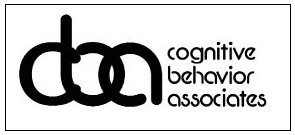Anxiety continues to be widespread among Americans of all age groups. Estimates show about 1 in 5 people in the US experienced any anxiety disorder in the past year. However, many patients with anxiety find they respond well to cognitive behavioral therapy (CBT), including individuals with generalized anxiety disorder. However, CBT is not a quick fix. Below, we cover how long cognitive behavioral therapy for anxiety can take.
How Does CBT for Anxiety Work?
CBT involves a combination of one-on-one meetings with your therapist and “homework” to do between sessions. Sessions involve discussion between you and your therapist that follows an agenda you set at the beginning of each session. This could involve reviewing a previous session, going over homework, exploring specific concerns, or other options.
Rather than a therapist solving problems, they are there to provide guidance and tools that you can then implement in your life and routines. Think of them like a nutrition or fitness coach. The sessions are vital, but so too is the work you do between sessions.
Some elements CBT for anxiety can aim to help you with include:
- Challenging negative beliefs or thoughts
- Learning strategies for approaching life situations
- Identifying and understanding your thought patterns
What Affects How Long Cognitive Behavioral Therapy for Anxiety Can Take?
CBT usually involves 3–4 months of sessions with a therapist, each lasting 45 to 50 minutes. At first, a typical routine will involve weekly sessions that then taper off after that 3–4 month period. However, meeting more than once a week is normal and can benefit some patients.
These are merely the averages. Taking longer (or shorter) is not a reflection of your quality as a person. What is important is that you reach a place where you can feel more confident in addressing anxiety. CBT aims to help you grow, and all growth is good growth. What is important is that you reach the level of growth that you need, rather than how fast you reach it.
Your individual CBT plan will be based on each factor affecting you and your health. The number of sessions is only one of these factors. A good therapist will take the time to fully understand your situation and actively work to create a path forward that meets you where you are at.
Anxiety Severity & Type
More severe conditions tend to take longer to treat. However, we want to emphasize this is not always the case. Many patients with severe anxiety may see improvements at a notable pace. The severity and types of anxiety you experience are but one factor among many.
CBT has proven efficacy for a range of anxiety disorders, including:
- Generalized anxiety disorder (GAD)
- Panic disorders
- Social anxiety disorder
- Certain phobias
- Obsessive-compulsive disorder (OCD)
- Post-traumatic stress disorder (PTSD)
Comorbid Disorders
If a patient has more than one disorder at a time, we call these comorbid. Individuals with anxiety disorders can be more prone to additional mental health conditions such as depression, substance use disorders, and panic attacks. Comorbid conditions may require separate treatments, including other types of therapy or psychiatry. Additionally, some patients may require more CBT sessions for anxiety when it is comorbid with other disorders.
Individual Factors
CBT can prove highly effective, but it is not a panacea. Regarding disorders of the mind, the approach to treatment, while systematic, involves myriad variables. For example, a patient who had had a long history of anxiety may take longer to overcome this engrained mentality. But even then, this is not always the case. Some patients with years of anxiety may simply click wth their treatment and see more rapid improvements.
Additionally, what results you want to see can influence the number of sessions. Someone who wants drastic changes may pursue CBT for longer than someone who wants milder improvements.
Lastly, your life situation will influence your therapy. Elements such as financial difficulties, job instability, romantic struggles, and more can be significant sources of anxiety. Overcoming them is certainly possible, but they can certainly influence you.
Community Leaders in CBT
Cognitive Behavior Associates provide cognitive behavioral therapy for many mental health conditions and disorders. Our specialists are experienced, skilled, compassionate therapists who have helped many people already overcome anxiety.
References
- Curtiss, J. E., Levine, D. S., Ander, I., & Baker, A. W. (2021). Cognitive-Behavioral Treatments for Anxiety and Stress-Related Disorders. Focus (American Psychiatric Publishing), 19(2), 184–189. https://doi.org/10.1176/appi.focus.20200045
- National Institute of Mental Health (2024, Nov 14). Any anxiety disorder. https://www.nimh.nih.gov/health/statistics/any-anxiety-disorder

